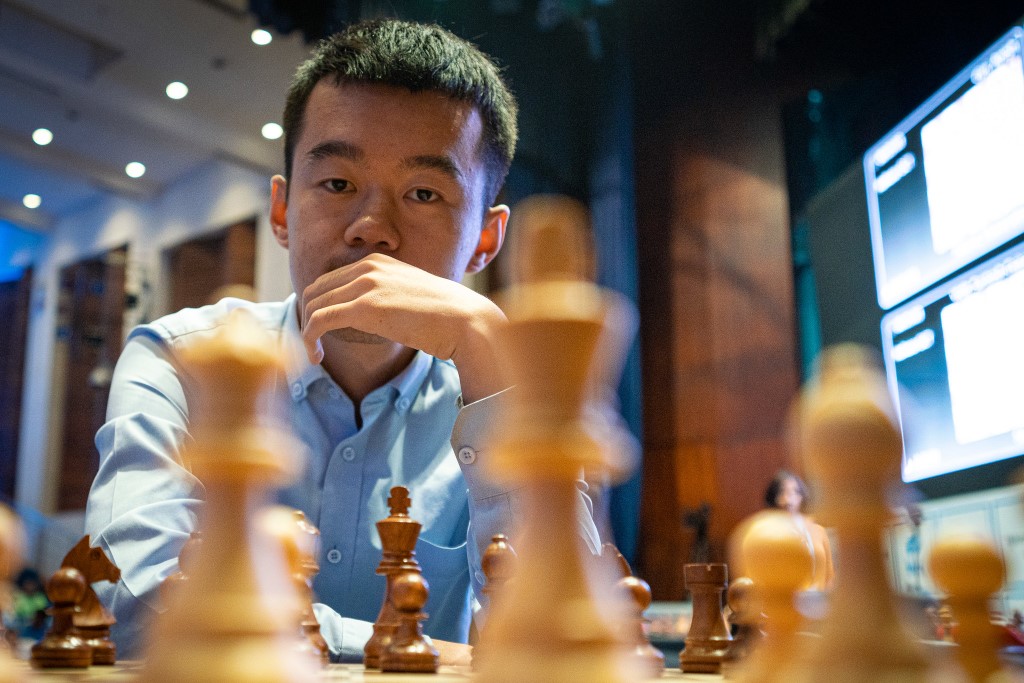


Winning starts with what you know
The new version 18 offers completely new possibilities for chess training and analysis: playing style analysis, search for strategic themes, access to 6 billion Lichess games, player preparation by matching Lichess games, download Chess.com games with built-in API, built-in cloud engine and much more.
A number of rather unpredictable events had a major impact on Ding Liren’s potential participation in the 2022 Candidates Tournament. The ever-humble Chinese star could not make it neither to Khanty-Mansiysk (World Cup) nor to Berlin/Belgrade (Grand Prix series) due to China’s strict travel restrictions amid the Covid-19 pandemic — he also missed the Grand Swiss in Riga, although his compatriot Yu Yangyi did make it to the Latvian capital.
The Ruy Lopez Breyer Variation
Pavel Eljanov explains in depth what Gyula Breyer already saw in 1911 and what became an opening choice of the likes of Kasparov, Kramnik, Anand or Carlsen. The Breyer Variation, which is characterised by the knight retreat to b8.
Moreover, for the first time since the return to the round-robin format in 2013, FIDE decided not to grant any spots based on players’ ratings. For Ding, whose lowest rating since May 2018 has been 2791, this left him with no chances of qualifying to the 8-player event. The chess community knows he is most deserving of getting a spot, but the rules are the rules.
FIDE’s Director General Emil Sutovsky explained on Twitter:
FIDE have done all we could to ensure Ding's participation, including numerous official letters. Pity it did not work. Unfortunately, the vast majority of Chinese players also skipped World Cup, Grand Swiss, World Rapid - and that is not because FIDE did not try to resolve it.
— Emilchess (@EmilSutovsky) February 2, 2022
A sudden turn of fate, however, gave the 29-year-old a second chance. Sergey Karjakin, who qualified to the Candidates by reaching the final of the World Cup, received a six-month ban by FIDE’s Ethics and Disciplinary Commission, which will prevent him (pending a potential appeal) from participating at the tournament in Madrid.
As per the regulations, the spot left behind should be filled by the highest-rated player in the official ranking list for May 2022. A prerequisite to be eligible, though, is to have played at least 30 rated classical games between June 2021 and the end of April 2022. Again, due to the travel restrictions, Ding did not meet this criterion, as he only played four games in the period — all against Lu Shanglei in a match organized in December.
Karjakin’s ban was announced on March 21, which meant Ding’s only chance to reach the Candidates was to play 26 classical games in a bit over a month while maintaining the highest rating of all eligible players — Levon Aronian is the closest chaser, as Alireza Firouzja and Fabiano Caruana are already qualified.
The Chinese Chess Association came up with a swift solution to the problem. First, they organized a 4-player quadruple round-robin in Hangzhou (12 games); then, a 6-game match against Wei Yi (6 games); and finally a 10-round qualifier to the Asian Games (10 games), set to finish on April 24. Ding already dominated the 4-player event and drew Wei Yi in the first game of their match.
It is doubtlessly an artificial method to get him to play in the Candidates, but given the circumstances, it is arguably a justified — yet unfortunate — decision. Moreover, throughout the years, Ding has proven to be an extremely strong player as well as a fair, well-intentioned competitor.

Ding Liren won the 2019 Sinquefield Cup after beating Magnus Carlsen in a rapid playoff | Photo: Lennart Ootes / Grand Chess Tour
Ding’s 2799 rating was more than 200 points higher than the ratings of all three of his opponents at the quadruple round-robin in Hangzhou. In the end, Ding won 9 out of his 12 games, gaining 9.8 rating points thanks to his massive 10½/12 score.
He did get in trouble a couple of times, though. For example, in round 1 against Li Di.
Black has a clear edge, with his rook stuck defending against the passer on the d-file and the knights too slow to deal with another potential passed pawn on the queenside. Li needed to focus on these two factors, with moves like 35...Rb8 or 35...Rd8 both good to keep his advantage. Furthermore, 35...b5 was the most forcing winning move in the position.
However, Li faltered with 35...f6, which gave White a couple of key tempi to regroup — 36.Nd6 Re6 37.Ng6 fxe5 38.fxe5
Only now Li went for 38...b5, but White is already too active and has a clear advantage. Ding’s conversion was not clean, but he managed to nonetheless get the full point six moves later.
Not only did Ding win 75% of his games but, curiously, the three remaining participants drew every single game in which Ding was not playing.